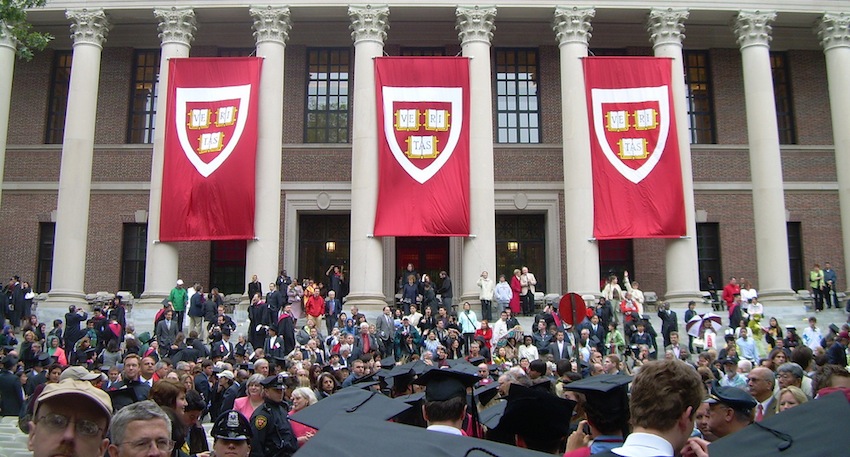Why Harvard Is Being Sued Over Affirmative Action

IMAGE VIA ILAMONT.COM ON FLICKR
Why is an Asian-American man suing Harvard University over its affirmative action policies?
On Monday, Students for Fair Admissions, the same group behind the affirmative action case decided in the Supreme Court last year, announced lawsuits against Harvard and the University of North Carolina over their admissions policies. The case against Harvard presented an Asian-American student rejected from the university despite being class valedictorian, earning perfect test scores, and participating in extracurriculars. The suit argued that Asian-American applicants face a “far higher standard than other students.”
This case is coming now for a couple of reasons. One is a direct result of the Supreme Court’s decision in last year’s affirmative action case, Fisher vs. the University of Texas at Austin. Though many civil rights groups feared the Court’s conservatives were ready to end affirmative action entirely, but instead, the Court applied a slightly new standard for judging whether a university’s admissions policies were Constitutional.
As SCOTUSBlog explains:
The university has to prove to a court that it has first tried some other methods of encouraging minority students to enroll that do not give any consideration, whatsoever, to race. If those other methods are ‘workable,’ that’s probably the end of the inquiry: race cannot then be used at all [in admissions decisions.]”
The new suit argues that there are several ways Harvard could encourage diversity in its student body besides giving preference in admissions. Schools could limit their consideration of applicants whose parents attended the school, they could increase financial aid, or they could give preference based on socioeconomic measures or zip codes, the suits say.
The second reason that these suits are coming, of course, is that opponents of affirmative action are waiting for the day that the Supreme Court will find the whole shebang unnecessary. The fact that the Supreme Court has upheld race-based admissions in past cases does not mean it will uphold their use forever. When the Court decided Grutter v. Bollinger, a 2003 case that allowed some use of race in higher education admissions, Justice Sandra Day O’Connor suggested that in 25 years, affirmative action would no longer be necessary. The Court’s current conservatives have made clear that they think the end date may come sooner than that. As SCOTUSBlog’s Lyle Dennison writes, “the Harvard and UNC lawsuits clearly were prepared to build a case in lower courts so that, perhaps two or three years from now, the lawsuits could reach the Supreme Court for an ultimate test of affirmative action, at least in college admissions.”
Either way, the focus on Asian-American students at Harvard was probably designed to garner more public sympathy, should this case or one like it ever reach the Supreme Court. Whereas Fisher focused on a white woman who some argued wouldn’t have been admitted even without the university’s affirmative action policies, this will focus on a member of a racial minority group.
For now, Harvard may have to argue that it has tried other methods to encourage diversity, and that they have not worked well enough to eliminate race from consideration in admissions. Even if the school proves that, though, the day will come when a Court will decide that adherence to past rulings on affirmative action isn’t enough.


